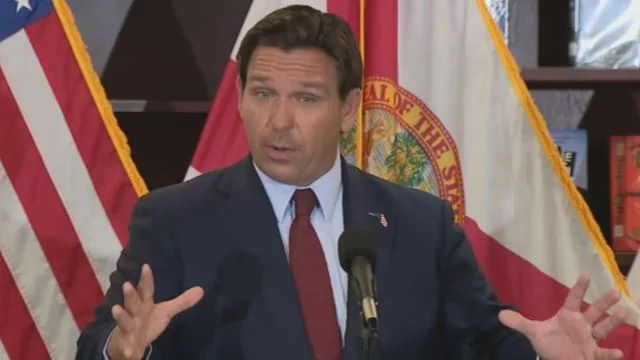
Florida’s Latest Crackdown: Are These New Laws the Answer to Rising Threats?
In a bold move to enhance public safety, Florida Governor Ron DeSantis has signed a series of new laws targeting swatting hoaxes and bolstering school security. These measures come amid growing concerns over false emergency reports and school vulnerabilities, potentially setting a national precedent for how states address these issues. As communities grapple with the dangers of misinformation and violence, Florida's actions highlight the urgency of protecting citizens and educational environments.
At the forefront is House Bill 279, which toughens penalties for swatting—a dangerous prank involving fake 911 calls that can summon armed responses. Under this law, individuals convicted of swatting that results in death face a second-degree felony, while those causing injury could be charged with a third-degree felony. Governor DeSantis emphasized the gravity of these acts, stating, "These are not victimless crimes... it's taking resources and manpower away from actual emergencies." The bill also mandates restitution, requiring offenders to cover costs for investigations and victim compensation, aiming to deter such reckless behavior and hold perpetrators accountable.

Alongside anti-swatting efforts, DeSantis signed Senate Bill 1470, which expands school safety protocols. This legislation broadens the school guardian program to include childcare facilities and mandates revisions to access controls, such as securing campus doors and gates. It also requires school security guards to be approved and trained by local sheriffs, aligning their standards with those of school guardians. These changes build on previous reforms, like adjusting school start times and enhancing training for public school staff on issues such as human trafficking and cardiac emergencies. By integrating these measures, Florida is addressing multifaceted threats, from immediate physical dangers to long-term educational resilience.
Comparing these laws to existing ones, such as those mandating AEDs in schools and anti-impersonation rules for rideshare drivers, reveals a comprehensive approach to public safety. While HB 279 focuses on reactive punishment, bills like SB 1470 emphasize proactive prevention, potentially reducing risks in everyday settings. Critics might argue that the emphasis on penalties could strain law enforcement resources, but supporters, including DeSantis, see it as a necessary evolution in an era of increasing digital threats. Personal stories, like that of Julie Miller, who endured repeated swatting calls, underscore the real human cost, with her reflecting, "It's a big deal... it costs money and puts lives at risk."

Overall, these laws reflect Florida's commitment to adapting to modern challenges, balancing enforcement with community protection. As many take effect on July 1, they could inspire similar reforms nationwide, prompting questions about the balance between security and civil liberties.
In conclusion, Florida's new laws on swatting and school safety mark a significant step toward safeguarding residents, but they also raise important questions: Are these measures enough to prevent future incidents, or do we need broader national strategies? We invite readers to share their thoughts in the comments below—do you support these tougher penalties, and how might they impact your community? Your insights could spark meaningful discussions on public safety evolution.